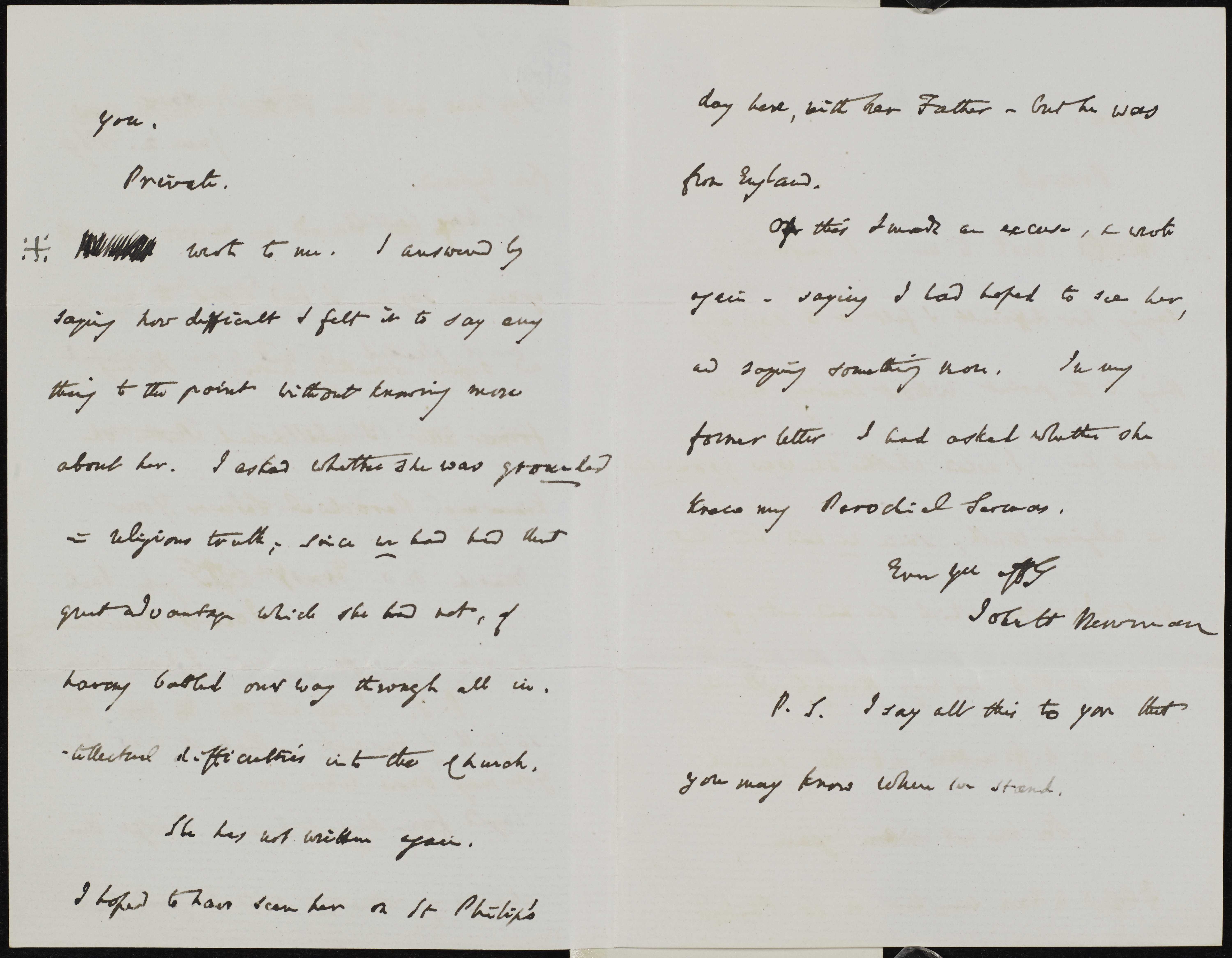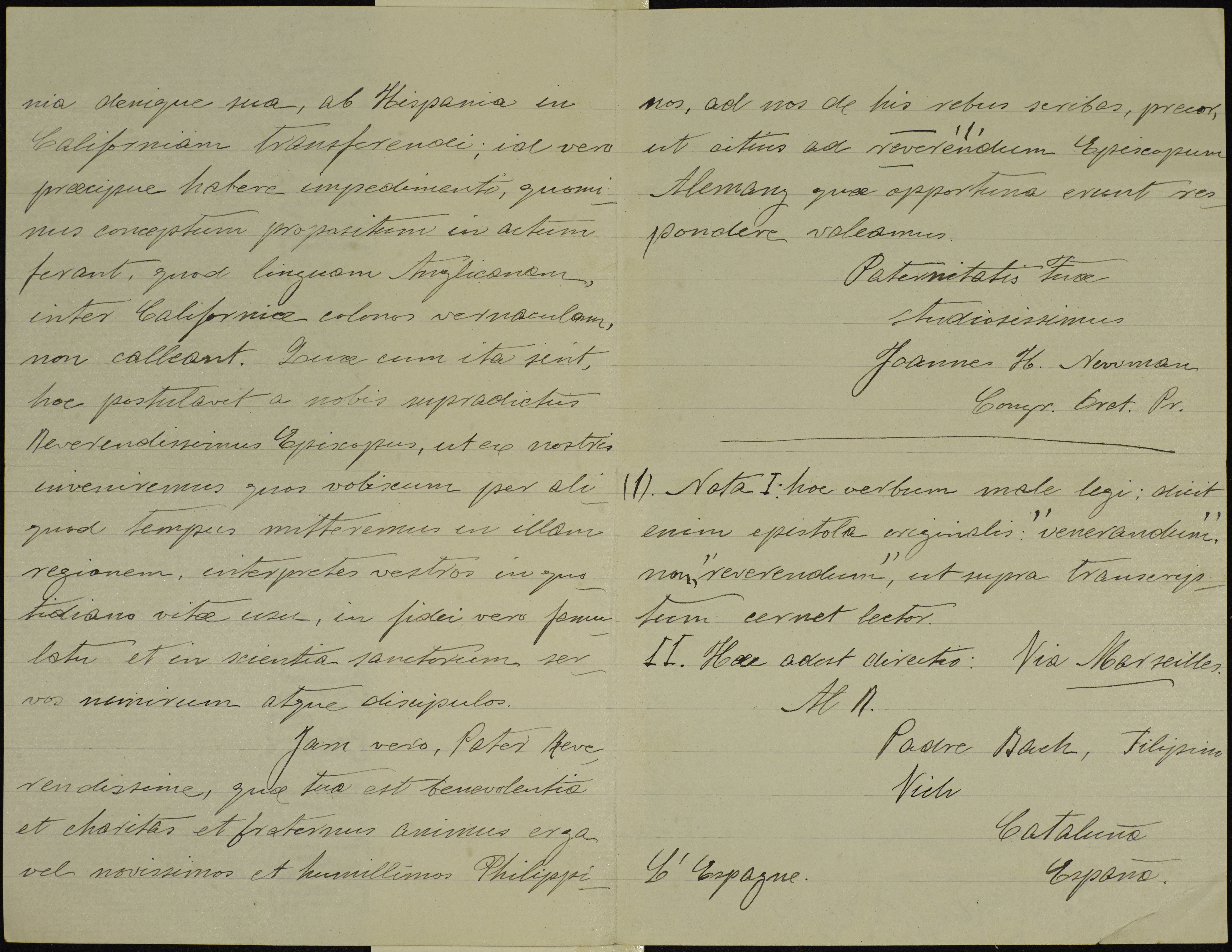Those wishing to know more about the soon-to-be canonized convert can access hundreds of once-hidden documents.
Lenten Campaign 2025
This content is free of charge, as are all our articles.
Support us with a donation that is tax-deductible and enable us to continue to reach millions of readers.
Anyone familiar with the 19th-century thinker John Henry Newman, who is to be declared a saint this fall, knows that the Anglican-turned-Catholic wrote a great number of books, essays and letters.
They may be in for a pleasant surprise when they see the extent of his writings online.
The National Institute for Newman Studies (NINS) this week launched a database that it says is the largest and most comprehensive digital archive of Newman-related works in the world. The interactive, online platform is home to more than 250,000 Newman archives, including letters, library records, photographs, maps, manuscripts, and more.
“The database brings to life digitized versions of Newman’s handwritten papers, published books, and never-before-seen manuscripts directly from the Birmingham Oratory archive, which revolutionizes the way scholars can access and study Newman,” NINS said in a press release.
The Birmingham Oratory is the religious house Newman founded in England in 1849, just a few years after he became a Catholic. It houses much of Newman’s original work, but, according to Daniel T. Michaels, NINS’ Chief Technology Officer, spatial and financial constraints meant smaller staff with limited public access, “so thousands of letters, diaries, photos, and more were packed into boxes and tucked away. Thus, with exception to the published Letters and Diaries (Oxford University Press), which only account for a fraction of the collection, access to Newman’s correspondence remained hidden for over a century.”

In an article at The Tablet, Michaels explained how NINS cooperated with the Birmingham Oratory and the Pittsburgh Oratory to scan nearly 250,000 folios from more than 165 boxes. The data totaled more than 40 terabytes of data.
“For comparison: 1 TB = 200,000 5-minute songs on iTunes, or 500 hours of movies,” Michaels explained. “Even long, multi-page documents, some of which contain 10+ GB of data per document, load on demand. What was once a large and unwieldy collection, locked in a nineteenth century cellar, is now organized and available at the click of a button.”

Said Ryan Marr, Director of NINS, “This project is more than five years in the making, and we are thrilled to see it come to fruition just in time for his canonization on October 13. Our hope is that this will allow for a greater audience to understand and appreciate Newman and his works on a more intimate level.”
In addition to the personal papers of Cardinal Newman and his colleagues who helped establish the Oratory, the digital collection contains letters from ordinary working people to Newman, and correspondence he received from key 19th-century political and religious leaders such as Benjamin Disraeli, William Gladstone, and Cardinals Nicholas Wiseman and Henry Edward Manning.
“The letters expose their personal views on topics such as the restoration of the hierarchy and papal infallibility, which opens whole new fields of research on Newman and the Church,” Michaels writes. “Researchers and enthusiasts no longer need to rely on published transcriptions or travel to Birmingham to view the original documents.”
He adds:
NINS has the largest single collection of published books, articles, and journals on Newman in the world. Within the next year, NINS will publish the majority of these resources online, with full-text search, including options to compare published works with handwritten originals. Furthermore, NINS has a never-seen-before database of Newman’s borrowing records from the Oriel College Library at Oxford. This record makes it possible to compare what Newman was reading concurrent with his writing.
More to read: A record left by John Henry Newman helped a scholar follow him through his library.








